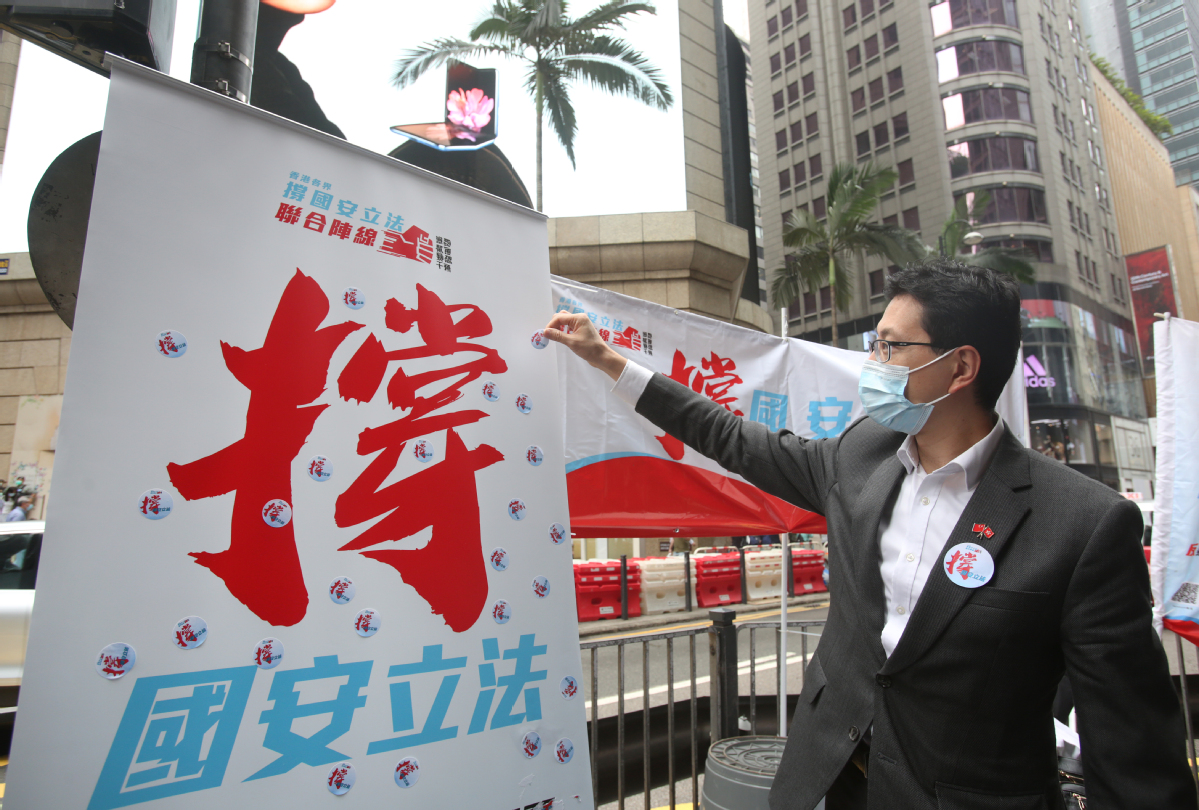Ip: National security law an urgent necessity


There is an urgent need for Hong Kong to have the proposed national security law due to recent acts of violence and civil unrest, says Regina Ip Lau Suk-yee, a member of Hong Kong's Executive Council.
Ip, who is also a former secretary for security, said violent protests against the extradition law last year in Hong Kong turned out to be serious threats to China's national security, but the city had no specific laws which could address the problem.
"The violent protests are real security threats that compelled the central authorities to take action," she said. Ip recalled that "there had been many violent acts: with people waving foreign flags in the streets, singing revolutionary songs, throwing gasoline bombs, sabotaging and occupying the legislature, besieging the police headquarters, attacking the Liaison Office (of the Central People's Government in the Hong Kong Special Administrative Region) and desecrating the national emblem".
"While the Legislative Council could not be relied on to enact Article 23 because the opposition camp paralyzed the legislature, filibustering even the election of the House Committee chairman for six months," she told China Daily.
On May 28, China's National People's Congress, the nation's top legislature, approved the decision to enact a national security law for Hong Kong. As a national law, drafting and legislation of the national security law are held outside the limits of Hong Kong's autonomy.
Secession, subversion, terrorism and external interference in Hong Kong affairs are prohibited in the proposed national security law for Hong Kong.
- Avalanche in Xinjiang leaves one dead
- Research ward at children's hospital in Shanghai treats over 200 patients with rare diseases
- Chongqing symposium examines planning cities around sound, smell, touch
- Former Qingdao legislature chief under investigation
- Former Xinjiang prosecutor Guo Lianshan under investigation
- Shandong and SCO discuss trade, investment and supply chain cooperation





































